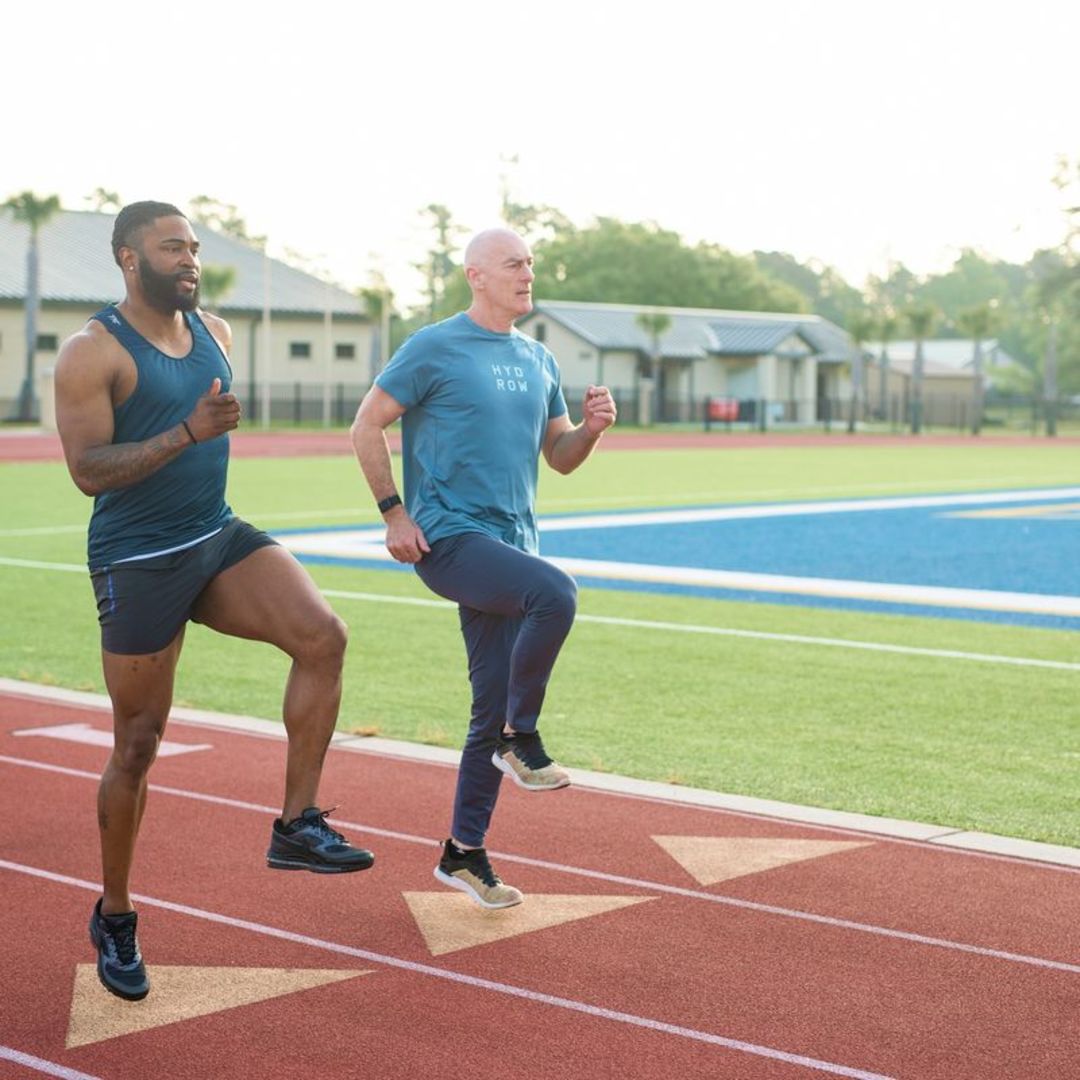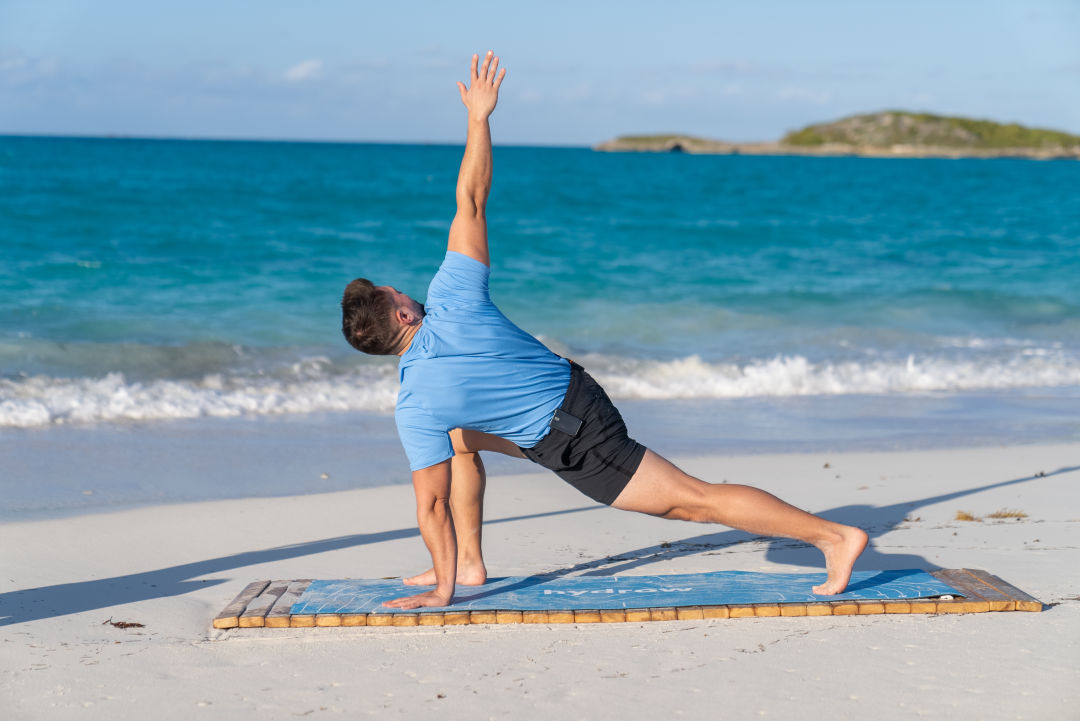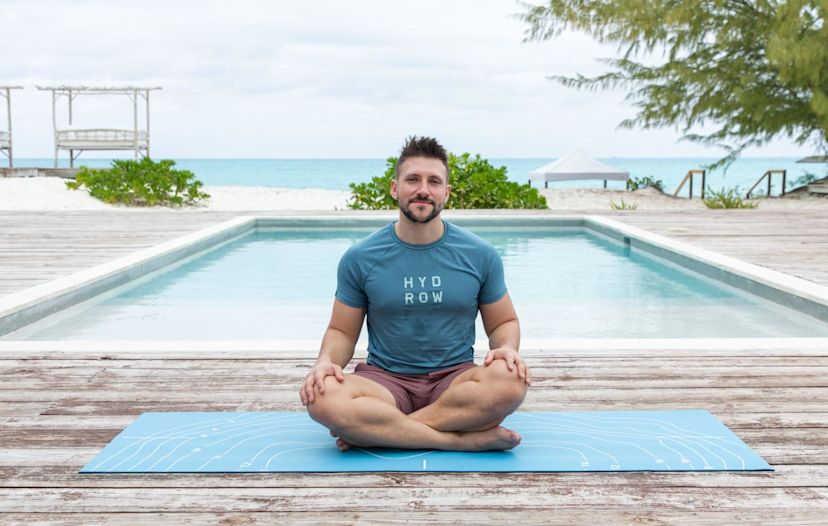Should You Do Yoga Before or After Your Workout?

No matter your fitness pursuits or personal goals, adding yoga into your exercise routine can help maximize your performance and recovery. Yoga offers a ton of benefits, including improved flexibility, body awareness, and breath control.
While yoga can be a great workout on its own, it also functions as a terrific warm-up or cool-down before or after a workout.
In this article, we’ll discuss:
Why you should do yoga before or after your workout
As a yoga teacher, I love yoga. It offers me so many amazing physical and mental health benefits. A yoga class is like a celebration of all that my body is capable of, and it sometimes feels like yoga is the glue that holds me together.
Praise aside, I know that yoga alone is not the best way to reach certain fitness goals. If you are interested in a well-rounded exercise regimen, you should consider combining yoga with other workouts.
For example, here are two aspects of fitness that yoga does not effectively train:
1. Cardio
While a vigorous yoga class will probably make you sweat and occasionally spike your heart rate, yoga is not the most effective way to train your cardiovascular system. Look to incorporate activities that keep your heart rate elevated for sustained periods of time — rowing, running, and biking all fit the bill.
I have found that runners in particular benefit from adding in yoga, as it helps to open up stuck areas like the hips and legs. If you’re looking to make your training more sustainable, lower-impact cardio like rowing can be a great avenue to pursue.

What’s your workout style?
Take our quiz and get a customized 14-day training program.
2. Strength training (specifically pulling movements)
While there is certainly an element of strength training in yoga, it is limited in a couple of ways. You are only using your own body weight as resistance, meaning you don’t get the benefits of progressive overload inherent to weightlifting programs.
Additionally, the movements in yoga are entirely “push” rather than “pull.” A pulling movement is one in which muscles are contracted to force weight toward your body (for example, a rowing movement). If you are interested in improving your strength and flexibility, consider combining yoga with strength training.
The benefits of doing yoga before your workout
If your workout demands that you show up focused and mobile, yoga is a great way to warm up. Imagine a fencer, climber, or biathlete, for instance — to perform well, these athletes must be laser-focused and have total control of their body. Yoga can help to focus your mind before a workout and give you greater body awareness.
If your workout or event is particularly stressful, doing some pre-workout yoga can help to give you a sense of calm amidst the challenge. By focusing on your breath, your body will naturally move into a less-stressed physiological state. A regular yoga practitioner learns to come back to their breath as an anchor when stressors arise. Yogic breathing can be a game-changer during your workouts.

Explore Hydrow’s library of yoga workouts from around the world.
Traditional yoga sequences like Sun Salutations are an effective way to heat up the body before a workout. You can add in different types of yoga poses depending on the demands of your workout. Balancing poses like Tree or Half Moon can help activate your stabilizing muscles, whereas twisting poses like Triangle can prepare you for cross-body movements. Overall, doing yoga before your workout is a great way to prepare your mind and body for any challenge.
The benefits of doing yoga after your workout
Yoga is the perfect cool-down after a workout for several reasons. Many yoga poses offer a deep, targeted stretch to areas that may need some love after a workout. For example:
Moving through a few slow rounds of Sun Salutation can stretch out the backs of the legs (in forward fold and downward-dog) and the hip flexors (upward-facing dog).
Pigeon pose or a supine figure 4 shape is a great stretch for the outer hips.
Twists are a phenomenal way to release any tension in the lumbar spine that remains after a workout.
Yoga aids in recovery after an intense workout because it encourages deliberate relaxation of the body. As your breathing slows and heart rate drops, your body can start to repair and rebuild. Movement like yoga after a workout can improve circulation so that your muscles get the building blocks that they need to come back stronger. If you suffer from muscle soreness after your workouts, try adding in some yoga to your post-workout routine.
Finally, doing yoga after your workout is a great way to savor the accomplishment of having worked out in the first place. The simple act of being present and noticing the effects of your workout — breath, heart rate, mental state — engrains a positive association between moving your body and feeling better.
Try to take just five minutes after your next workout to move through some easy yoga poses and smooth out your breath. Notice how you feel, and end with a moment of gratitude for yourself.
Related blog: Can You Do Yoga Every Day?
So, is it better to do yoga before or after a workout?
Yoga can be a great workout on its own, but it is also highly effective when included before or after a workout. Depending on your fitness goals, you may want to combine yoga with other types of workouts to accomplish a more well-rounded fitness routine.
Whether you’re new to yoga or want to deepen your practice, Hydrow’s yoga library offers guided workouts designed to help you build strength, improve mobility, and bring calm to your day.
Explore Hydrow’s yoga workouts today.

Did you know?
Over 90% of Hydrow members are still active one year later.






